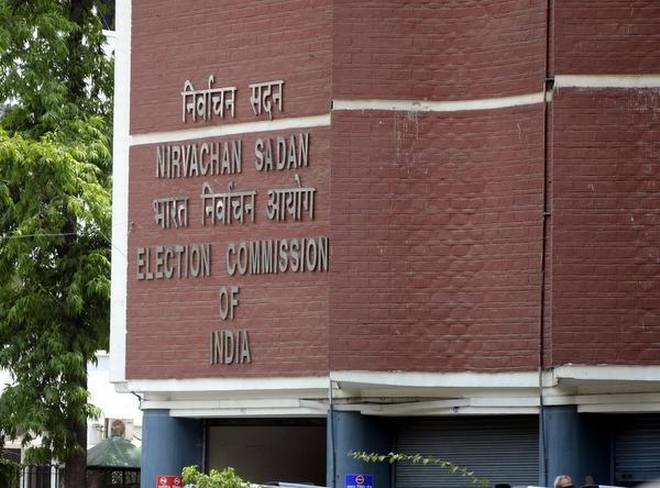Political parties are out of purview of RTI Act: Election Commission
 NEW DELHI : Information is an antidote to corruption; it limits abuse of discretion, protects civil liberties, encourages people’s participation and brings awareness of laws and policies. This is how RTI currently brings individual and institutional accountability to our administrative machinery.
NEW DELHI : Information is an antidote to corruption; it limits abuse of discretion, protects civil liberties, encourages people’s participation and brings awareness of laws and policies. This is how RTI currently brings individual and institutional accountability to our administrative machinery.
Political parties represent citizens of the country at various levels of the government. They voice people’s demands and needs in the administrative sphere and therefore serve as the link between citizens and the government. Thus, if RTI is not extended to political parties, the attempt to make a foolproof transparent system will be in vain.
The RTI Act has been used to fight corruption and has exposed the deep-rooted graft in the country, such as big scams like the Adarsh Housing Society scam, 2G scam and the corruption around the Commonwealth Games.
Meanwhile, The election commission has said in an order that the political parties are out of the purview of the RTI Act, which is contrary to the Central Information Commission’s directive bringing six national parties under the transparency law.
The poll panel statement, which may prove to be controversial, came while deciding the appeal of an RTI applicant seeking to know donations collected by six national parties who were brought under the ambit of the transparency law by the CIC in June 2013.
“Requisite information is not available in the Commission. This is related to political parties and they are out of purview of the RTI. They may submit information of donation/amount collected through by Electoral bonds in their contribution report for the financial year 2017-18 in the ECI for which the due date is September 30, 2018,” the appeal order citing comment of the Central Public Information Officer has said.
Pune-based Vihar Dhurve had sought to know through RTI the details of donations collected by the six national parties– the BJP, Congress, BSP, NCP, CPI and CPM — and the Samajwadi Party through newly introduced electoral bonds.
Six out of seven political parties– the BJP, Congress, BSP, NCP, CPI and CPM–for which information was sought by the applicant were brought under the ambit of the RTI Act by a full bench of the commission on June 3, 2013.
The order has not been challenged in the higher courts but the political parties have refused to entertain the RTI applications directed at them. Several activists have approached the Supreme Court on the grounds of non-compliance of the CIC order and the matter is pending.
When it comes to the RTI Act, the Central Information Commission is the only appellate authority which may declare a body as public authority if it is convinced that the organisation fits into the criteria for being under the Right to Information Act.
“When the Central Information Commission has declared six national political parties as public authority, the Election Commission cannot take a position contrary to that unless the order of the CIC has been overturned by the Supreme Court or High Courts. The order of EC has no merit,” former Chief Information Commissioner A N Tiwari told PTI.
Venkatesh Nayak, a noted activist on RTI matters, said the public information officer of the election commission has exceeded his limits in giving this order.
“The June 2013 order of the CIC bringing six national political parties under the RTI Act remains in force even if the political parties do not obey it. It has not been stayed or set aside by any court. Therefore, as far as national political parties are concerned they are squarely covered under the RTI Act,” Nayak said.
He added that all the information about state and national parties fall under the RTI Act which is held by the Election Commission of India and the CPIO is bound to make disclosure about them rather than taking position that these political parties are out of purview of the RTI Act.
When contacted over phone about the controversial statement in the order, Wilfred said he meant that not all political parties are covered under the RTI Act. But when asked that the RTI appeal pertained to the six political parties which are under the RTI Act, as per the CIC order, he did not give any explanation except to say that the DoPT has issued an order that when an RTI plea pertains to multiple public authorities, it is not compulsory to transfer the question to them.
However, the order signed by him does not mention this. He had, however, transferred a question related to meeting held with political parties on the issue of electoral bonds to the Finance Ministry.( With Agency Inputs ).

